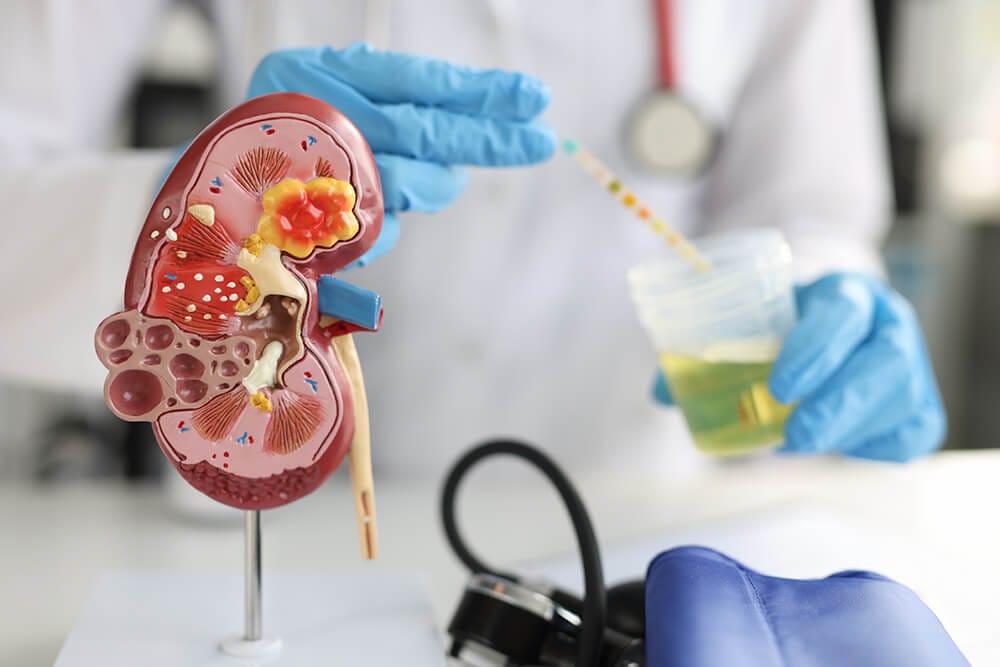
Dysentery Disease: Causes, Symptoms, Prevention & Treatment
An Overview of Dysentery
What is dysentery?
Dysentery is a bacterial or parasite infection in the intestines that causes diarrhea. It results in blood, pus, and mucus in stool. The bacterial infection and pain in the intestines usually last for 3-7 days. It causes severe inflammation of the intestines. Dysentery is contagious, which means that bacterial infection can spread from one person to another. Nearly 140 million people worldwide suffer from dysentery every year, out of which almost 6 million die due to severe complications. It is mainly a water-borne disease that is more common in children below the age of five in developing countries with poor sanitation and medical facilities. Dysentery disease is confirmed through a stool test.
Types of dysentery
Dysentery can either be caused by bacteria or a parasite. Therefore, it is of two types, bacillus dysentery caused by Shigella and amoebic dysentery caused by amoeba. The two types of dysentery have been discussed in detail below:
-
- Bacillus Dysentery:- The bacteria that causes dysentery is called Shigella. This is why bacillus dysentery is also called shigellosis. It causes nausea, vomiting, fever, and abdominal cramps. Doctors usually prescribe antibiotics for bacillus dysentery.
- Amoebic Dysentery:- The cause of amoebic dysentery is a protozoan parasite, named Entamoeba Histolytica. This type of dysentery is also called intestinal amoebiasis. Amoebic dysentery is usually asymptomatic or shows some mild symptoms like loose feces or stomach cramps. If you are infected with this amoeba, you might start seeing mild symptoms within 2-3 weeks. In severe cases, the infection can spread to the liver or lungs and causes accumulation of pus in the organs. It usually requires two-three stool samples to detect amoebic dysentery.
Symptoms of dysentery
As you have already read above, dysentery can sometimes be asymptomatic or you might have some mild symptoms like stomach cramps, nausea, vomiting, or diarrhea. These symptoms may look similar to that of food poisoning or regular diarrhea. However, if you experience abdominal pain and diarrhea for weeks, it can be an indication of dysentery. Some more common symptoms of dysentery are given below:
-
- Bloating
- Flatulence
- Fever and chills
- Dehydration
- Dry skin
- Frequent thirst
- Swollen liver
- Weight loss
- Weakness
- Dizziness
- Rapid heartbeat
Causes of dysentery
People living in developing countries are more prone to develop dysentery. The following are some of the most common causes of dysentery:
-
- Poor sanitary conditions: The most common cause of dysentery is poor sanitary conditions. It is more frequent in slum areas where people can easily get in contact with animal or human feces. You can also get dysentery if you swim in infected water.
- Contaminated water or food:- You can also get dysentery if you have food and water contaminated with shigella bacteria. If you have leftover food or drink water from a bottle already used by a person with dysentery, you can also get a bacterial infection.
- Passed on from another infected person:- Dysentery can be passed on from one person to another if the pathogens in the feces get transferred. If you touch the belongings of another person that has dysentery bacteria, you can also get infected.
Diagnosis of dysentery
If you have diarrhea, a doctor will ask for symptoms to diagnose whether you have dysentery. However, in case of mild infection, it is tough to confirm dysentery because it may appear to be some other intestinal infection. Therefore, it is important to get a stool test done for diagnosis of dysentery. A lab technician checks a stool sample under a microscope to check the presence of shigella bacteria or parasites to confirm dysentery.
Complications arising from dysentery
Severe cases of dysentery can cause the following serious health complications:
-
- Liver Abscess:- Dysentery bacterial infection can spread to the liver and may cause a liver abscess. It is a condition in which a small pouch filled with pus gets formed in the liver.
- Postinfectious Arthritis:- Shigella infection can cause arthritis after dysentery gets treated. It causes inflammation in joints, especially lower limbs.
- Hemolytic uremic syndrome (HUS):- Dysentery can also cause a rare complication in which the small blood vessels in the kidney get inflamed. This condition is called Hemolytic uremic syndrome (HUS).
Home remedies for dysentery
You might need to have antibiotics for bacillus dysentery. However, if you have mild diarrhea or other dysentery symptoms, you can try the below-given home remedies for dysentery.
-
- Mix one teaspoon of salt in a glass of water and drink it two-three times a day to restore lost body fluids.
- Have foods rich in potassium like sweet potatoes.
- You can also drink buttermilk to keep yourself hydrated.
- Have fruits with high water components like watermelon.
- You can have foods rich in carbohydrates, like bananas and rice, during dysentery.
However, if you have diarrhea for more than 2-3 days after following the above home remedies for dysentery, it is best to consult a doctor.
Treatment options for dysentery
Mild cases of dysentery do not require medical treatment. You might get relief in 3-7 days. The following are some treatment options for dysentery.
-
- Antibiotics:- If you have diarrhea with blood and mucus, you must consult a doctor immediately who will most likely prescribe you antibiotics for treating the infection. Tablets for treating dysentery are available.
- Keep yourself hydrated:- One of the most important treatment options for dysentery is to keep yourself hydrated. Diarrhea in dysentery can cause loss of fluid and electrolytes from the body, therefore, you should have fresh orange juice or tender coconut water twice a day. You can also have an oral hydration solution (ORS).
- Have mild painkillers:– If you do not have a severe case of diarrhea, but are experiencing abdominal pain, you can have some OTC painkillers like paracetamol for relief.
Prevention of dysentery
Maintaining proper sanitary conditions is essential for the prevention of dysentery. Here are a few things you can follow to prevent dysentery and avoid spreading it to other people:
-
- Wash your hands every time with soap and water for at least 30 seconds after using the washroom and before having food.
- Carry your own water bottle and food if you are traveling to slum areas and use a sanitizer before having anything.
- Avoid brushing teeth with tap water and use clean drinking water.
- Avoid using dirty swimming pools.
- Wash fruits and vegetables properly.
- To prevent spreading dysentery to other people, use a different washroom, avoid cooking food for others, and do not mix your clothes with others until the infection is treated.
- Do not have food or water left uncovered and always heat leftover food before having it.
Conditions causing similar symptoms
The following are some other conditions that have similar symptoms as dysentery.
-
- Bloody stool:- Other diseases that cause bloody stool include gastritis, food poisoning, colorectal cancer, ulcers in the intestine, and irritable bowel syndrome.
- Abdominal pain:- Apart from dysentery, you can also experience abdominal pain in pancreatitis, anemia, STDs, liver cirrhosis, appendicitis, hepatitis, kidney stones, and pelvic inflammatory disease.
Conclusion
Dysentery is a bacterial infection that causes pus, mucus, and blood in stools. Some common dysentery symptoms include fever, dizziness, diarrhea, dehydration, weakness, abdominal pain, and stomach cramps. The majority of the time, dysentery treatment can be done at home by taking plenty of fluids. It usually gets better in 3-7 days. However, if you have a severe case of diarrhea because of dysentery, it is best to consult a doctor and get a stool test or blood test done to confirm the type of dysentery.
FAQs
What is the difference between diarrhea and dysentery?
Diarrhea is a viral infection that causes loose or watery stools. Dysentery may have the same symptoms like diarrhea. However, it is a bacterial infection that causes blood, pus, and mucus in stools. Dysentery causes inflammation or ulcers in the colon.
Can someone die of dysentery?
Yes, dysentery can be fatal in severe cases. It can cause dehydration and accumulation of toxins in the body due to bacterial infection. However, the chances of it are very rare. Usually, dysentery has mild symptoms that last 3-7 days.
Can dysentery be treated at home?
Yes, mild symptoms of dysentery can be treated at home by keeping yourself hydrated and drinking ORS to restore water loss. You can have potassium and carbohydrate-rich foods like sweet potatoes and bananas to manage dysentery.
References

















